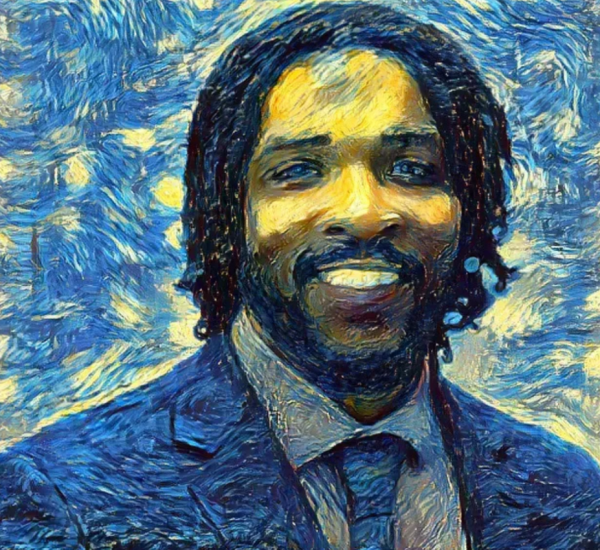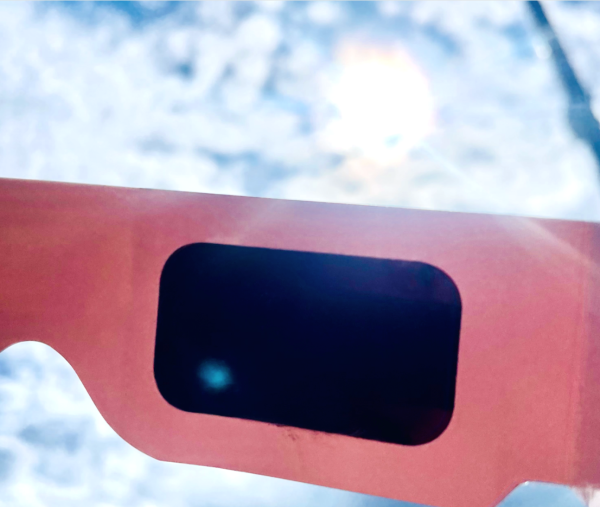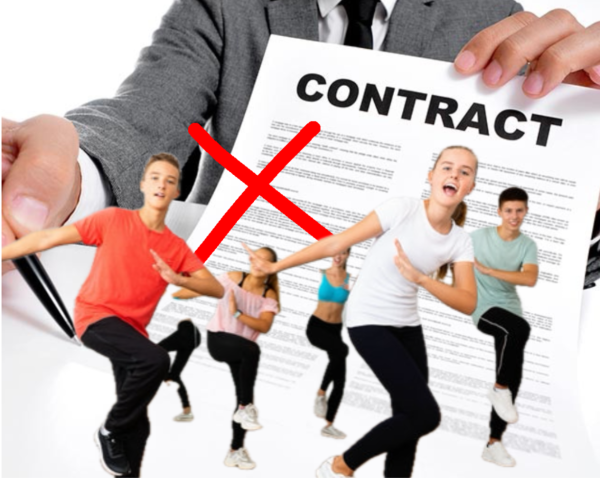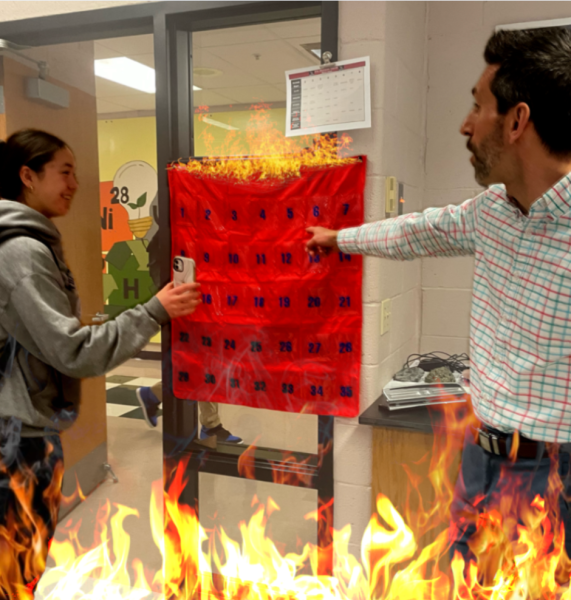Interview with Former Principal Mark Schellenger

October 6, 2017
This past week former principal Mark Schellenger made a quick visit to Radnor from his home in Florida. He agreed to do a quick interview with me about his experience with the severe Hurricane Irma that wrought devastation over Florida last month.
Q: When the last time you were at the high school?
A: I was here last spring for a quick visit. My son works here; I still stay in touch with a lot of people. This place is very close to my heart and always will be, so I try and stay in contact and kind of know what’s going on. I talk to Mr. Bechtold pretty frequently, and I come up a few times a year.
Q: And do you think it’s changed at all since you were principal?
A: There a few changes, but I think that the thing that makes this place great will never change, and that’s the people, and the students and the friendships that you guys have- and I say that to people. I say that the real strength of this place is the friendships that the kids have and how they support each other. Hopefully that has not changed.
Q: You just came to PA from your home in Naples, FL after Hurricane Irma. How did your community come together and help each other out before the storm hit?
A: You know, it was good to see that there was a lot of people helping people. I stayed with a woman that I’m dating, and she had some people come in and out of there, who didn’t have power and would stay there. So there were a lot of people helping each other. I saw a little bit of ugliness, people getting a little scared, budging in front of people to get stuff at the store and things like that. That was a little crazy. But generally speaking people took good care of each other. The traffic lights were out, so we had to do it the right way- so for the most part I saw the best in people come out, and people came together and helped others. We had the National Guard down there helping, distributing food and water and people helping people who lost their homes, so the good part of humanity did show itself.
Q: There were stories of looting and bad situations like that, but I’m guessing you didn’t see anything like that first-hand?
A: Not too much, I think there was a little bit in Miami where I was. I didn’t really hear of it, which is very very good. I did see PECO electric trucks, so people from all over the country to help people get power back. That was the biggest issue, power.
Q: How did you prepare for the hurricane?
A: First of all, deciding whether to stay. We went back and forth over whether or not to stay. We actually got a place in Orlando and then cancelled it. And then trying to get water, trying to keep the tank full of gas- there were lines a few days ahead of time. Getting water was very difficult, trying to stock up on non-perishables, even a bunch of Clif Bars if we had nothing. It was smart because food was hard to come by afterwards. Nothing was open at all. So we did all those things, got the flashlight, decided where the safe room would be which turned out to be a laundry room; we put a mattress in there. And then making the decision to stay or go, and a lot of people said “are you crazy? Why are you staying?”
Q: How did you make that decision?
A: It wasn’t that simple, because to leave- everybody was leaving, there was no gas, so once you run out of gas, what are you going to do? And they kept saying that the storm surge, the water coming from the Gulf, is what really could kill people. They said the wind you could hide from. So we thought we wouldn’t get a storm surge where we are, so we decided we’re staying and preparing for the winds. So I think it was the right decision.
Q: You said that you rode out the storm at a friend’s house in Fort Myers. What was the actual experience like, in their home, seeing the storm go by?
A: As the days went on it seemed like it was going to go up the East Coast. Then all of a sudden it was coming [there], and it looked like the eye was coming right at us. We had a shortwave radio and flashlights all set up in this laundry room that was all concrete. It was single floor, no basements there. So that was a little disconcerting. We got very very lucky in that the storm hit Naples and coming up to Fort Myers it broke up a little bit and went from a Category 4 to a 2. We saw a 2, and I can’t imagine what a 4 could have been. It could have ripped the rooftop of the house off. God forbid if that had happened, we would have been okay, we literally had a mattress over us in a concrete room. But very fortunate that that did not happen, really.
Q: I don’t to downplay the effects of the storm, but there was a picture of you in the Philadelphia Inquirer on a ladder trying to bring down coconuts from a tree. Was the process of preparing for and enduring the storm kind of fun or interesting?
A: I’ll admit that it was kind of interesting in a way. I’m from Pennsylvania so I’ve never been through this. It’s hard to say it’s exciting in a positive way, but there was a lot of work getting ready. The postscript of the coconut thing is that one of them hit me in the head. It just grazed me and I fell off the ladder. [My friend] got quite a kick out of it. I didn’t understand all the preparations, necessarily, but I really do now. People boarded up homes, and we tried to get plywood, but there was none left. There was a huge run on plywood at all the Lowes and Home Depots. Some was stolen from a builder we knew- 80 sheets of plywood were taken. I will say this, that Harvey being so recent, that everybody saw, everybody really took it seriously and really prepared. From what I was told they had never done it to that extent as they did for this one.
Q: What was going through your mind during the storm? Was it scary?
A: I wouldn’t say I was ever scared. There were some moments when it looked like that eye was coming right at us. There was a thought that [my friend] had just renovated her house, so would this all be gone? I wasn’t scared for my life, but I thought there could be some really serious property damage if this thing hits like it could. We got lucky that it amazing broke apart. We lost power for a while. Fortunately [my friend’s] house is on a hospital grid, so it was the first one to get power back- within 24 hours. But there were some people who didn’t have power for 7-10 days.
Q: The devastation caused by the storms feel kind of distant to us up in Pennsylvania. How can we combat that and help out the people who were affected and displaced?
A: I think the best thing to do is go through the Red Cross. But your point is well taken. I’ve lived up here and I’ve watching these things on TV. But when you’re in the middle of it there are a lot of personal stories that are happening. There were areas that I saw where the homes were flooded. And those homes are ruining. And these are places where you wouldn’t think of that the water came. So the reality of it, when it’s right in your face. I used to use this term while I was principal here, and that is the Personal Fable. The Personal Fable is “it won’t happen to me”. We all think that. We hear about a car crash or somebody has cancer, and we don’t think that would happen to us. But when it’s right in front of you, there is something healthy about feeling that reality. I certainly have empathy for people in those situations.
Q: It seems like these storms are becoming more and more common. How do you think the government and citizens should prepare better for the situation that you and millions of others went through in Florida?
A: Well hopefully we would take the scientific data that exists about climate change and utilize it as scientific data and not politicize the issue. Because you realize we take the lights, air conditioning, etc. so much for granted. Have a lot of gratitude for what you have, because a lot of people are in much worse situations. I know you guys are feeling all sorts of pressures here about where you’re going to school, but you should try to keep it in perspective. When there’s no water on the shelves to buy, or there’s no gas, your whole perspective changes and your priorities shift. There’s a whole chain of events that makes that gas get there or that bread and water get there.
Q: You’ve been retired for more than two years now. Is there anything that you miss about being principal?
A: I miss a lot. I miss the interactions with the kids, I miss the teachers. There are some things I don’t miss, and we don’t need to go into them, but I miss a lot of it.
Q: Are there any interests or hobbies that you’ve been able to pick up now that you’ve got more time?
A: Well I’m looking to get back into the classroom. I’ll probably be teaching down there. But I’ve been doing a lot of good exercising and reading of things I couldn’t read before.
Q: The last class that you were principal for is going to graduate in June. Do you have any advice for them as they move on to college?
A: [The Class of 2018] has obviously done a great job the last three years, and yeah it’ll be a change for me as your class is the last one that I had any involvement with. But just try to do things the right way, and live by the Golden Rule. It’s the simple tenets of life that really hold true. The older I get the more I realize that we make things more complicated that it needs to be. Treat people with courtesy and dignity and respect and it’ll come back to you. Work hard and be nice. Simple stuff, but it’s not always that simple to do.
Q: Thank you Mr. Schellenger for your time.
Although we live far away from these situations, talking to Mr. Schellenger opens a window into what a community could look like mid-disaster. With tragic events such as the mass shooting in Las Vegas and the devastation Hurricanes Harvey, Irma, and Maria wrought over Houston, Florida, and the Caribbean, it is important to keep things in perspective, as our former principal told me. One way to help out as a community to communities affected, we can donate to the Red Cross through RHS and individually to the victims of all these disasters.






